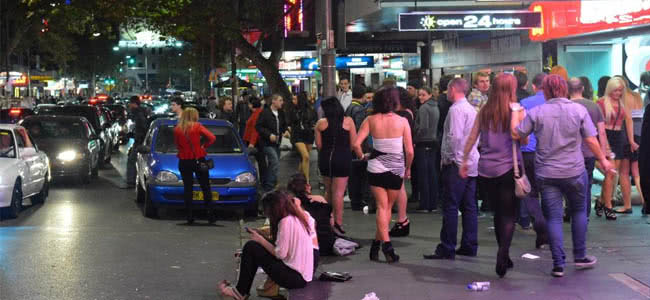It’s been almost 12 months since the NSW government passed the controversial alcohol and curfew legislation, causing licensed venues in Sydney’s ‘entertainment precinct’ to implement a strict 1:30am lockout policy, to stop serving alcohol at 3:00am, as well as a statewide closure of bottleshops by 10:00pm in efforts to curb alcohol-fuelled violence.
Since the laws were rushed into affect early last year, there has been an outcry from businesses who operate within the hotspot region, many claiming that the tough new laws would be detrimental to their operations, this fear becoming a reality for The Flinders Hotel who announced it was closing its doors just last. Now, after much lost within the CBD area, the state government have confirmed that there will be an early review of the harsh laws, as Fairfax Media reports.
The legislation was not meant to be up for review until 2016, however a spokeswoman for acting Premier Troy Grant said on Monday a review would commence in June when the government receives 12-month data from the Bureau of Crime Statistics and Research, “The NSW government supports evidence-based measures that balance individual and industry responsibility and that help curb anti-social behaviour,” she said.
It’s stated that changes could be made to the legislation if it has been found to be ineffective in achieving its set objective, which means that laws could tighter, as well as less strict, or completely lifted.
[include_post id=”426936″]
This announcement has seen mixed comments from the public, with the liquor industry as well as smaller parties comprising of pubs, clubs and venues appearing hopeful after having claimed the new laws had caused up to 40 per cent worth of monetary losses on their businesses.
That’s not to mention reports that emerged late last year that showed that alcohol-fuelled violence had risen in Sydney’s CBD, suggesting that the draconian laws were in fact having an adverse affect on those within the nightlife hotspot.
Advocates of the lockout laws are unhappy with the governments review decision, some calling out the lawmaking body for crumbling under pressure from “vested parties”. Others have used the argument that St Vincent’s Hospital had reported a 50 per cent fall in patients admitted due to alcohol-fuelled violence since the implementation of the laws, suggesting that the tough laws were in fact working.
In addition to this, St Vincent’s Health Australia chief executive Toby Hall stated the government should stick to its original 2016 review plans, “we’re concerned that 12 months doesn’t give the government, and the broader community, enough time and data to fully assess the laws and their impact. We’re equally concerned that a premature assessment of the measures will lead to them being watered down and that would be disastrous” he explained.
With both sides providing strong argument for their case, there’s no telling what’s exactly in-store for the future of Sydney’s central entertainment precinct, however the fact that the NSW government are going ahead with a review suggests there could be a change in the air.

































